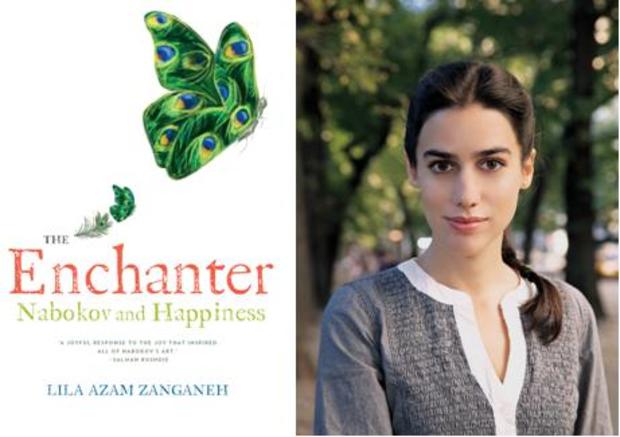Falling in love with Nabokov "The Enchanter"
"CBS Early Show" anchor Jeff Glor interviews Lila Azam Zanganeh about her book, "The Enchanter."
Jeff Glor: What inspired you to write the book?
Lila Azam Zanganeh: I fell in love with Nabokov. With the light that radiates from his books. But also with the man himself, and his life. He was forced to leave Russia and flee the Bolsheviks in 1919, at 20, then again, he fled France and the Nazis in 1940, at 41 (his wife, Véra, was Jewish.) His father was assassinated in Berlin in 1922. Yet he was able to collect himself and write himself into happiness. My own family was exiled from Iran. And my uncle was executed in 1979, in the aftermath of the Islamic Revolution, on the roof of a primary school in Tehran. He was half-Russian, half-Iranian. His death and the revolution changed the course of all our lives forever. And I became fascinated by the capability to reinvent oneself. In large part, this is what The Enchanter is about, its secret undercurrent.
JG: What surprised you the most during the writing process?
LAZ: How much joy it gave me. Writers often feel that the writing process is torture. I suppose I am also inspired in this by Nabokov. He was that rare bird: a happy writer. He was not only very happy in his private life, he adored his craft, as much as he reveled in butterfly hunting. So his happiness became contagious in a sense. Because what he teaches us is a singular way of looking at the world. And this is the leitmotiv of The Enchanter. Each chapter is one idea of happiness according to Nabokov, one way of looking: at time, at memory, at love, at nature, at colors, at words, and of course, at light...
JG: What would you be doing if you weren't a writer?
LAZ: I would be an opera singer. I've been singing classical music since the age of 17. Mostly 18th-century music. Purcell, Haendel, and also Mozart (though his relatively simple melodies are extremely deceptive, they are the hardest to sing out of anything I have ever come across). Nothing, in my eyes, rivals with the crystalline joy of writing, save perhaps for classical music.
JG: What else are you reading right now?
LAZ: I find that a good way to clear one's mind in the morning, from the rush of the world coming at you, is to read poetry. It feels like praying in a sense, like a clearing of the inner chatter. Strangely, magically (and somehow, more so than prose), it takes one to a place of inner quiet. I try to do it every day, after I wake up. I read just a few poems at a time. Once in a while, if I feel very brave, I delve into Dante or Homer, two or three pages a day. Poetry has the advantage of being short. But then again, Dante and Homer are carved out in handy cantos and books...
JG: What's next for you?
LAZ: I am writing a novel, titled "The Orlando Inventions." It's an exploration on the nature of love, spanning 14 centuries, in sequences of fragments which will be very light on their feet. It starts in the 8th century in France and finishes in the 21st century in New York. The main character, a fanciful knight, is both a man and a woman, and experiences countless adventures. As Robert Frost would put it: miles to go before I sleep!
For more on "The Enchanter," visit the W.W. Norton website.
